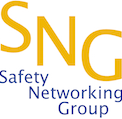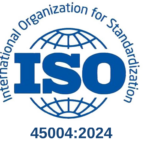The recent QRMC Safety Networking Group session hosted by Energy Queensland included a presentation from the Work Health and Safety Queensland (WHSQ) Work & Electrical Safety Policy Unit exploring the detail of the legislative changes following the acceptance of the recommendations from the Best Practice Review of WHS Queensland. This review prompted the Work Health and Safety and Other Legislation Amendment Bill 2017 which formally introduced the industrial manslaughter requirements, as well as series of administrative processes such as the requirement of the PCBU [Person Conducting a Business or Undertaking] to provide WHSQ with a list of HSRs (Health and Safety Representatives) and deputies for each work group, as well as copies of PINs (Provisional Improvement Notices) issued by their HSRs.
Further, the Amendment Bill established the 5-year expiry provisions for the WHS Codes of Practice.
1 July 2018 will see further provisions of the Amendment Bill come into effect, such as:
- Restoring the status of WHS Codes of Practice whereby there is a requirement to comply ‘unless an equal to or better than safety standard’ is demonstrated (as they were under the 1995 WHS Act);
- Mandating HSR training within 6 months of being elected, with a refresher every 3 years; and
- reintroducing the WHSOs (Work Health and Safety Officers), except this time under a voluntary scheme, as a means of assisting the PCBU to comply with WHS laws and aim to improve safety performance
The change in the status of the WHS Codes will prompt a technical and legislative review of the current 38 Codes of Practice by WHSQ, with this work to be completed by 1st July. It was acknowledged that this review may prompt significant amendment to the Codes of Practice that were preserved from the previous 1995 Legislation. It is anticipated that there will be a comprehensive review of each WHS Code of Practice (undertaken on a priority basis) over the next 5 years.
It was noted that at this stage the amendments that enable this change within the WHS space have not been reflected within the Electrical Safety Legislation.
The SNG session provided an opportunity for open face-to-face discussion with the Policy Unit Manager and their Project Lead covering these amendments, and QRMC thanks them for their involvement and support of the SNG.
The legislative update presentation was followed by Dr Tristan Casey, a registered organisational psychologist and Principal Advisor with the Safety Leadership and Culture Unit at WHSQ, who presented on ‘Leading Your Safety Culture: Understanding, Diagnosing & Improving.’ The presentation explored the outcomes of the LEAD study into safety culture and safety climate with the first cohort involving 31 organisations and over 4,100 respondents.
ABOUT THE SNG:
In 2005 QRMC founded the Safety Networking Group for senior safety professionals working in the greater Brisbane metropolitan area. QRMC continues to coordinate and arrange for speakers to present at quarterly meetings and discuss information on contemporary WHS issues. Group members also share information from their workplaces or industries, which other members frequently find interesting and useful.
More information on the Safety Networking Group can be found on our website. Senior safety professionals contemplating attending meetings in Brisbane can contact QRMC to express an interest.











